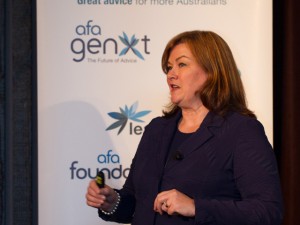This article by New Zealand-based consultant, Tony Vidler, on what customers want from life insurance providers first appeared on Tony’s blog: The Financial Adviser Coach. It analyses the findings of a 2013 study by Swiss Re, which looked into the key factors consumers use to determine which insurance provider to deal with…
One of the questions that continually vexes professionals is: “What do customers want?”
In the life insurance area of financial services the answer is even tougher to find than usual, but an excellent report from Swiss Re sheds some light on this for the industry (Swiss Re: Sigma No 6/2013. Life Insurance: focusing on the consumer). Simplistically, we can conclude easily enough that customers want money to turn up quickly and painlessly to help a surviving family or business adjust to the loss of a person. That’s the end result that customers are looking for of course, put into the most basic terms.
But what do customers want when trying to determine which insurer they should consider using?
The research shows that there are common themes globally, regardless of cultural or geographic or demographic issues. The primary areas of concern for consumers are:
- Simplicity
- Transparency
- Trust
- Loyalty
Each of these areas can be considered from two different perspectives: ‘Product’ and ‘People’.
establishing trust in the insurer and the product at the outset is a major factor
Product
 Generally consumers want to be able to make good choices through comparison, to determine relative value. An ongoing issue in life insurance is the difficulty for consumers to easily compare different options and products, despite the number of online pricing comparators that have evolved in recent years. Comparing the price of products remains relatively meaningless if the consumer is unable to differentiate the products themselves from each other in terms of how they work, or might be expected to perform.
Generally consumers want to be able to make good choices through comparison, to determine relative value. An ongoing issue in life insurance is the difficulty for consumers to easily compare different options and products, despite the number of online pricing comparators that have evolved in recent years. Comparing the price of products remains relatively meaningless if the consumer is unable to differentiate the products themselves from each other in terms of how they work, or might be expected to perform.
The terminology that the industry uses contributes to the lack of simplicity for consumers, but so too does the inability to explain in clear terms why a particular product might be superior or unique, or why the pricing is what it is.
This lack of simplicity and transparency in product undermines the general desire to establish a commercial relationship based upon trust, as the complexity actually generates levels of distrust. The majority of consumers know full well that life insurance is likely to be something which they hold for many years, so establishing trust in the insurer and the product at the outset is a major factor.
So too is the expectation of loyalty from consumers according to the research. Customers expect, largely, to have some form of loyalty recognition built into the insurance-customer relationship that rewards the years of patient premium payment.
People
The second key area where these core consumer needs must be met if the industry (and its products) wants greater support and participation from consumers is from the people representing the industry and its products.
Without doubt there has been significant focus upon the ‘transparency’ issues in recent years, largely as a result of evolving professionalism across the industry globally, supported by regulatory reform. Yet, the research suggests that consumers feel that the industry is not yet transparent enough.
consumers are not giving the industry a pass mark on simplicity
The complexity that remains within product and pricing presents an opportunity for industry professionals to demonstrate value and meet a core customer need, thought to do that successfully requires establishing the required levels of trust. Higher levels of transparency will assist with establishing higher levels of trust, but so too will greater simplicity in advice and information sharing.
For all the technical excellence which has been created, it seems apparent that consumers are not giving the industry a pass mark on simplicity. And we certainly do not appear to be achieving this on loyalty to long-standing customers either.
For any practice looking to differentiate, in the customers’ eyes these two areas would appear to be golden opportunities. Simplify everything possible to enable customers to understand and feel they are making good comparisons and good choices, and then put in place service systems that reward loyal customers.

Tony Vidler helps advisers create the branding and positioning they want, and then helps them get more business. Tony is the Principal of Strictly Business, a consulting and coaching firm for financial advice professionals. He began his career in the New Zealand financial services industry in June 1990 as a tied life agent.
This article first featured on Tony’s blog, The Financial Adviser Coach in March 2014.
Contact or follow the author: Website | Twitter | Google+ | LinkedIn
















